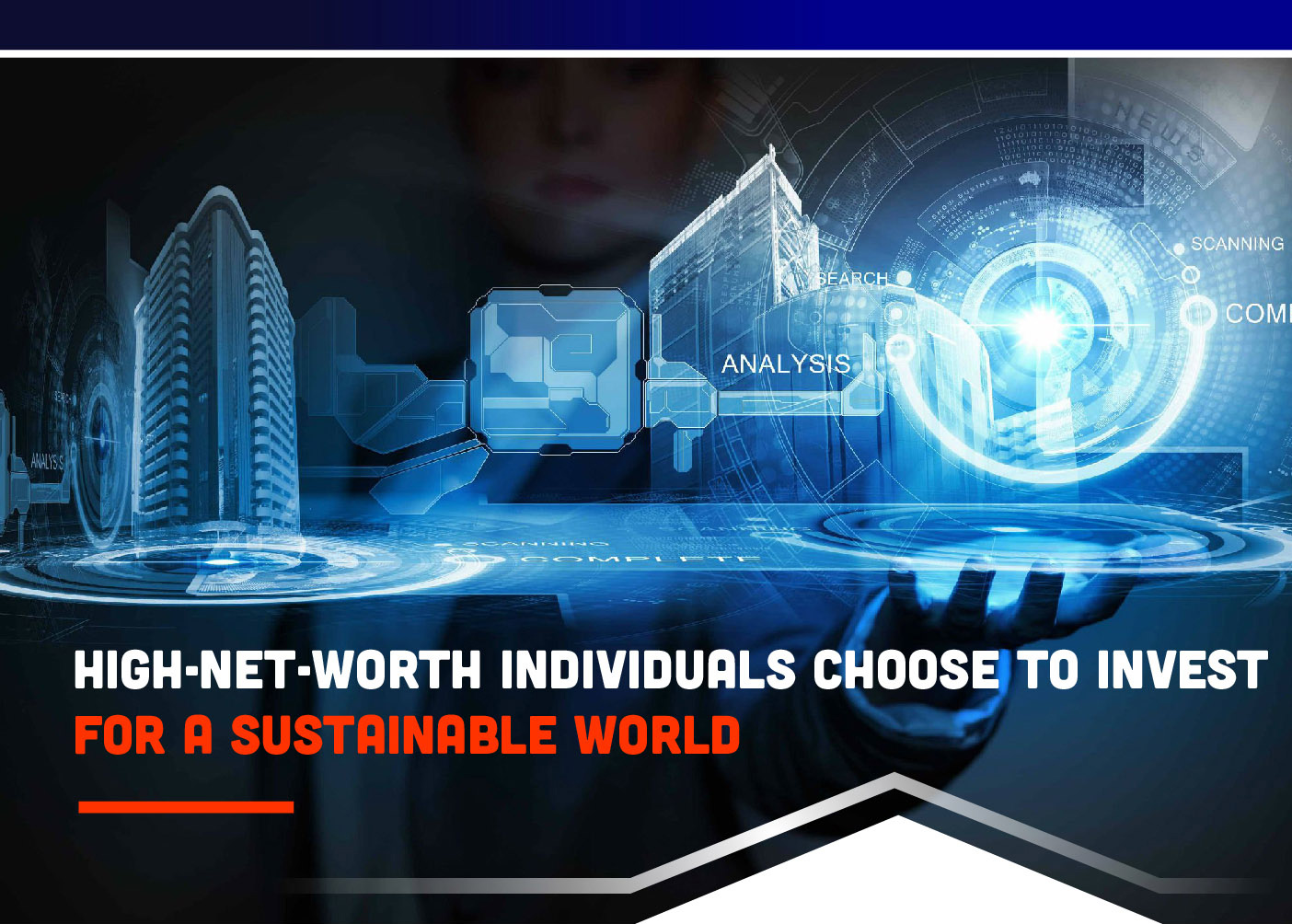High-net-worth individuals (HNWI those whose investible assets exceed USD 30 million) and their investment portfolio are always in the public spotlight. Their names are closely associated with success in essential sectors such as technology, transportation, real estates and aviation etc.

However, in recent years, these HNWIs show that sustainable investment or impact investment demonstrates their responsibility towards environment apart from financial profits. They use their own money to promote positive changes to the earth via sustainable investments ranging from owning shares in companies with diverse labor forces and buying urban bonds to build schools for disadvantaged children to investing in clean technology projects, ensuring safe water resources and promoting public transportation…


Climate change has caused the living environment to become more stifling than ever before. UNESCO estimates that, by 2030, the world will require 30% more water, 40% more energy and 50% more food. The cost of climate-change-related impacts on the environment, health, and food security could exceed USD 4 trillion in 2030. The living environment is at threat, and health-related issues of each citizen is the most urgent priority. Consumers all over the world want products to reflect their values and have positive impacts on society, which leads to increased demand for investing in the environmentally sustainable projects. The market LOHAS (Lifestyle of Health & Sustainability) of nearly USD 300 billion has grown by over 10% per year from 2000s onwards. While this investment accounts for USD 60 billion in 2015 according to Global Impact Investing Network’s report,
JP Morgan estimates this investment will USD 1 trillion in 2020.


In practice, HNWI’s sustainable investment is the most interesting topic as they are renovators. They use their assets and affluence to manage risks and returns in a creative manner by investing in brand-new ideas and technology and alternative assets that bring comparatively lower-value assets as compared to traditional markets.
Social responsibility investment – SRI is a combination of financial targets with their concerns over Environment, Society and Governance (ESG). They cover, but are not restricted to, various names such as ethical, social, green, responsible, sustainable and impact.

Although sustainable investment arises from ethics i.e., avoiding using a certain product, it now covers investment to meet existing demands but not in the cost of the next generations.
Some investors find a way to avoid using a certain product whereas others will assess the company based on certain standards. Some are promoted to combine ESG criteria by eliminating risks while others seek for investment towards perfect markets by taking advantage of demands for products and sustainable solutions. Some pursue impact/social impact investment model while others seek for long-term profit stability. However, the shared issue lies in concerns over environment, society and governance in investment.


Given the increase in investment funds in sustainable projects, UBS Global Wealth Management reports indicate investments of HNW investors with at 1% investible assets are allocated to investment related to environment, society and governance. BNP Paribas Wealth Management invested Euro 12 billion in environmentally responsible projects 2017, up by 50% each year from 2011 onwards. Over 60% of HNWIs consider environmentally responsible investment as of utmost or critical importance whereas HNWIs in Asia consider it as more important than any other areas in the world.
In Canada, 89.8% of investors surveyed expressed their interest in sustainable development, especially female young investors. In which, 60% HNWIs in China invest in at least 1% of their assets in sustainable investment funds, closely followed by HNWIs in Brazil (53%), United Arab Emirates (53%), England (20%) and the US (12%) as compared to the average 39% of HNWIs all over the world.


Despite 12% of US HNWIs investing in sustainable projects including renewable energy projects and companies that is committed to equally paying employees, the figure for sustainable investment projects will amount to 58% within 5 years with 72% of millennial investors investing in sustainable projects as compared to merely 6% of over-65-year-old investors. Even though sustainable investment does not account for the largest portion in the US HNWIs’ portfolio, the majority of US assets managers surveyed by GlobalData believe that social responsibility investments play an important role to the next generations.
According to The Generations Project survey by OppenheimerFunds and CoreData company, investment preference will changes by investors’ generations. For example, Millennials at the ages from 22-30 are more interested in projects with a combination of profits and long-term benefits to community or environment. Meanwhile, Millennials at the age from 30-36 and Baby Boomer generation support clean technology projects, and Silents, of highest age, focus on water resource preservation.


As those who are connected and exposed to more information than previous generations, Millennials HNWIs are not innocent or highflying at all. The transfer of assets between Millennials and their parents during 2-3 decades is highly likely to lead to explosion of demand for sustainable investment. Experts forecast that from USD 30 to 59 trillion will be owned by Millennial HNWIs. Millennials Survey 2014 by Deloitte indicated that nearly 30% of Millennials believe that the number-one priority of business is the mission of society improvement and fulfilment. They believe that businesses could do more to solve challenging problems related to resource scarcity (56%), climate change (55%) and income inequality (49%).






